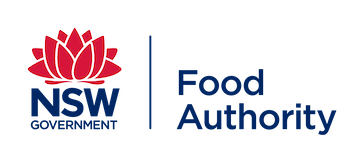Poultry product transport
A poultry product transporter is a vehicle that transports poultry product for human consumption.
Poultry means:
- chicken
- turkey
- duck
- squab (pigeon)
- goose
- pheasant
- quail
- guinea fowl
- mutton bird
- other avian species (except ratite)
Licensing, registration
A poultry product transporter is required to:
- apply for a Food Authority licence online or download an application form (PDF, 394 KB), print and post it
- meet food standards requirements
- prepare for and be audited every 3 years.
For more see applying for a food licence.
Construction & facilities
So that meat transport vehicles are not the source of contamination of animals, meat or meat products, vehicles and equipment need to:
- allow for hygienic transportation
- be effectively inspected and monitored
- be effectively cleaned and maintained
- have surfaces that are durable
- have surfaces that are smooth, impervious and corrosion resistant
- have surfaces that are non toxic, resistant to food, detergent and sanitising agents under normal operating conditions
- have surfaces that do not transmit odour or taste
- have surfaces that are capable of withstanding repeated cleaning and sanitising
- have surfaces that allow visible contamination to be easily seen
The meat carrying compartment of the meat transport vehicle must:
- be separate from the rest of the vehicle
- be adequately insulated and supplied with operating refrigeration equipment
- effectively prevent the entry of odours, smoke, dust and other environmental contaminants during transport.
Skills & knowledge
There are no formal food safety qualifications required for poultry product transporters.
Each food handler and person in control of a food business is required to have food safety skills and knowledge appropriate to their food handling activities.
See FSANZ guide chapter 3.2.2 Division 2 in Safe Food Australia.
Requirements are set out in the Food Standards Code, Standard 3.2.2 - Food Safety Practices and General Requirements, clause 3.
Hygiene & handling
Handling poultry
A food handler must take all reasonable measures not to handle food or surfaces likely to come into contact with food in a way that is likely to compromise the safety and suitability of food.
Transporters must exercise personal hygiene and health practices so the food is suitable for sale by:
- wearing clean clothing at the start of each day
- not handling food if they know, or suspect, they have an illness (for example, vomiting and diarrhoea)
- covering open wounds with a waterproof bandage
- washing their hands whenever it is likely their hands could contaminate food (for example, after visiting the toilet, after meal breaks)
- not smoking around product at any time.
For more see our factsheets:
See also:
- FSANZ guide Safe Food Australia
Full requirements are set out in Food Standards Code, Chapter 3, Standard 3.2.2, Division 4 - Health and Hygiene
Food safety controls
Food safety controls include the requirements for food handling from receipt to disposal.
They also include food recall requirements.
To provide consumers with safe food, a poultry product transport business must transport poultry products using time and temperature controls that prevent or reduce the growth of microbiological hazards in the product.
Food Safety Program
Food Safety Management Statement (FSMS)
All poultry product transporters must develop and implement a food safety management statement (FSMS).
An FSMS is a statement that sets out how the business complies with the requirements of the Food Standards Code Standard 4.2.2 Primary Production and Processing Standard for Poultry Meat . This includes examining, identifying, controlling, and verifying the potential food safety hazards during business operations.
In NSW, the FSMS needs to be approved by the Food Authority.
- For small independent poultry growers this will be done at their premises as part of the verification program
- For contract growers this will be done centrally through the applicable processor.
Poultry product transporters can choose to use the example Food Safety Management Statement template developed by the Food Authority as an FSMS.
Labelling
There are no specific labelling requirements for poultry product transport.
Testing
No routine microbiological or chemical testing of product is required of poultry product transporters.
Inspections & audits
An inspection of poultry product transporters will be undertaken during audits of the related poultry processing facility.
Legislation & standards
Poultry product transporters also need to meet the requirements set out in:
